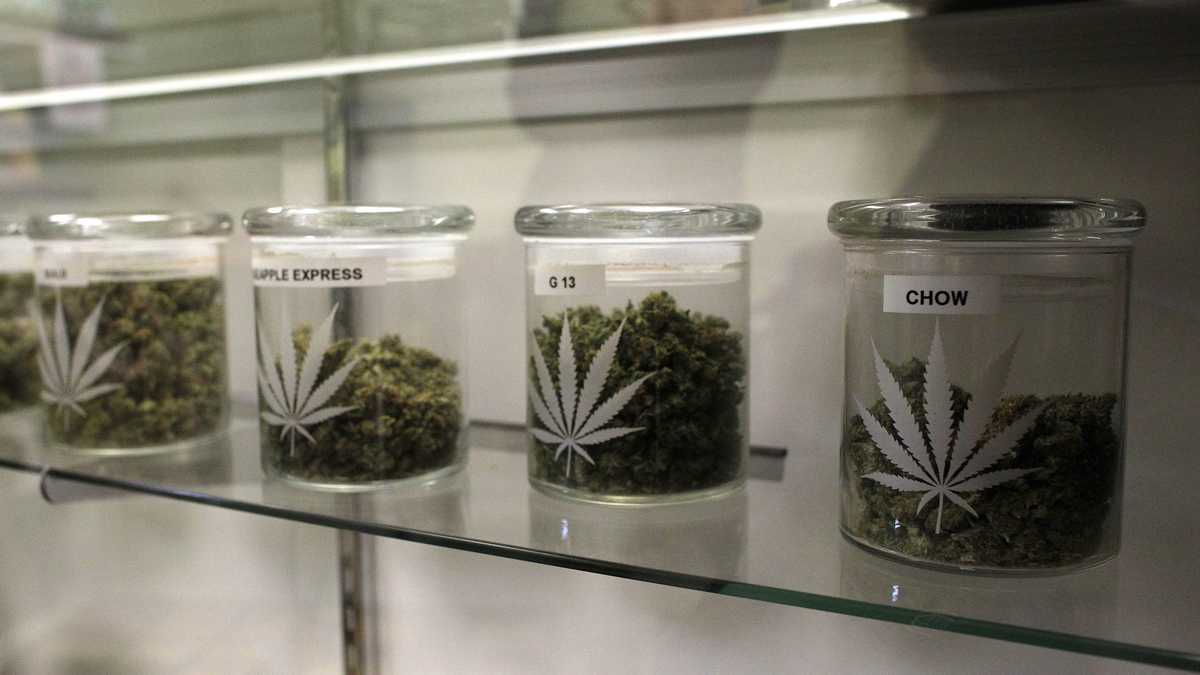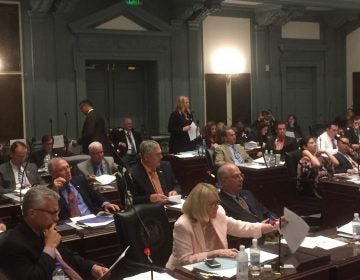Issues around Delaware cannabis legalization not resolved
A task force exploring legalizing cannabis in Delaware asks for an extension to complete its work.

There are now more than 19,000 patients in New Jersey’s medical marijuana program. (Brennan Linsley/AP Photo, file)
A group of stakeholders tasked with examining issues around legalizing recreational marijuana in Delaware are asking for more time to report to the General Assembly.
State Rep. Helene Keeley, D-Wilmington, and state Sen. Margaret Rose Henry, D-Wilmington, approved a request from the Cannabis Task Force to spend more time to discuss legalization, and to draft recommendations to present to the state.
“If this legislation is passed it’s a big change for Delaware, and I don’t mind, necessarily, making sure every side is heard, and that we do this in a manner that is thoughtful and thought out—as opposed to where other states have ended up having to go back and change their laws several different times because of roadblocks they encountered,” Keeley said.
Earlier this year, a legislative committee advanced Keeley and Henry’s measure to legalize recreational cannabis for those over 21, but it never went to the floor for a vote.
The law as written would regulate and tax cannabis much like alcohol. Individuals would be prohibited from operating a vehicle under the influence, carrying it across state borders and growing or creating products on their own, and companies would still be allowed to drug test employees.
Proponents say cannabis is significantly safer than alcohol and tobacco, has medical benefits, creates jobs and boosts the economy. Legalization in Delaware would bring in an estimated $22 million in taxable revenue, advocates say. Keeley’s current legislation would tax marijuana at $50 and it would cost buyers about $200.
Those in favor of legalization argue criminalizing marijuana is just as ineffective as alcohol prohibition was, creates a dangerous illicit market and causes unnecessary arrests of non-violent offenders, often with a racial bias.
While the bill has several supporters, many stakeholders say too many safety and regulatory issues surround legalization.
Throughout his campaign, Gov. John Carney, D-Delaware, also said he wasn’t on board with legalization. However, he’s since met with advocates to hear their point of view. Carney has not stated if he will support the bill if it lands on his desk.
To address concerns, on the last day of session this year, Keeley introduced a resolution creating the 26-member task force, which consists of lawmakers, health experts, law enforcement, AAA and other state officials. They first met in September and are required to submit their report by the end of January. Keeley must now introduce a resolution in January requesting an extension until the end of February.
Coalition member Cathy Rossi of AAA Mid-Atlantic said three months was simply not enough time to debate the various concerns.
“There’s a myriad of issues and sub issues, not of all which have known answers—there’s many unanswered questions,” she said.
“Other states have plunged into the murky waters of legalization and they’re drowning in problems. They’re telling other states to wait. So as we move through this process, it’s important to take our time in thoughtful deliberation on the issues and to ask questions about the issues—and frankly, we haven’t had a whole lot of time to do that.”
One of the major issues brought up during this week’s meeting was what an appropriate tax structure should look like.
“The position of the coalition is if legislators have the health and welfare of Delawareans in mind they would question if legalizing this harmful drug is really where we want to be. If they have the fiscal health of the state in mind they should realize this may cost just as much or more money than what it brings in,” Rossi said. “This is frankly the next big tobacco, and it’s all about the money, and if we knew then what we know now about cigarettes, would we have acted differently in the 50s about smoking?”
Keeley said when the task force wraps up at the end of February, the General Assembly should feel more confident when voting on a bill.
“We have to gather all this information and put it in a report. And then the legislators read the report and they then make up their mind whether they believe what we put forward are stringent enough for them to feel comfortable that young children would not have their hands on this, that if a 17-year-old went to a dispensary they would not be served cannabis, just like if a 17-year-old went to a liquor store or bar they would not be served,” she said.
Keeley said extending the deadline does not stop the legislation from being voted on by the end of session on June 30.
“I don’t think it changes anything. The legislators still have to receive the report, read it. If they get a report in January versus the end of February, there’s still plenty of time to read the report and to have people make their decision,” she said.
“We’re making sure all our I’s are dotted and T’s are crossed, and we’re answering every question that is put forth about what would happen, what could happen and what may happen. So to take our time with it and have an extra 45 days, I’d rather do that than rush it and have people come back and say, ‘Hey we asked you for more time and you didn’t give it to us and you’re just trying to rush this and push this through.’ That’s not being a good legislator as far as I’m concerned.”
WHYY is your source for fact-based, in-depth journalism and information. As a nonprofit organization, we rely on financial support from readers like you. Please give today.





